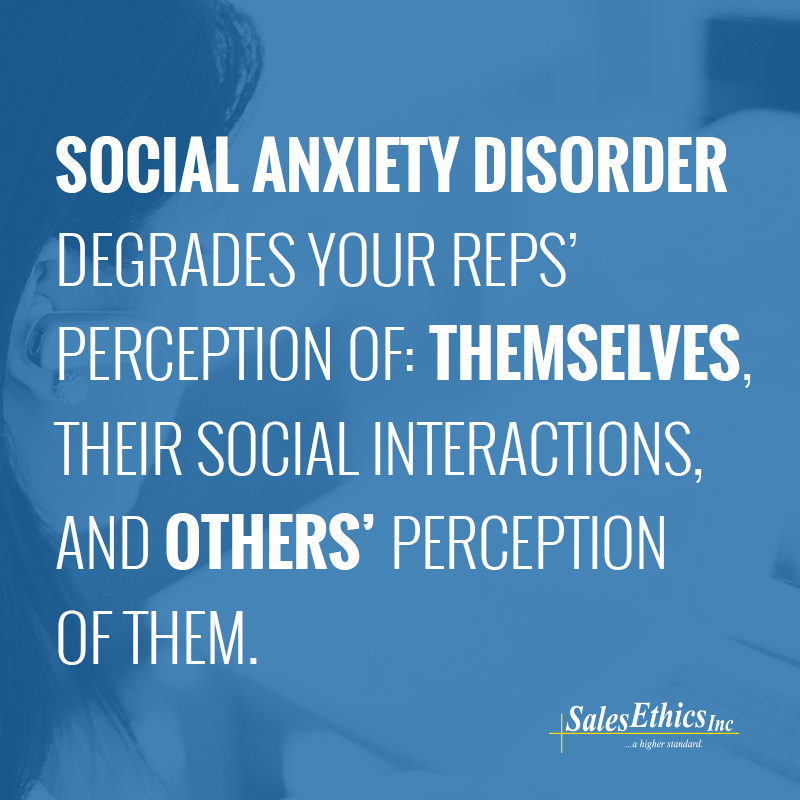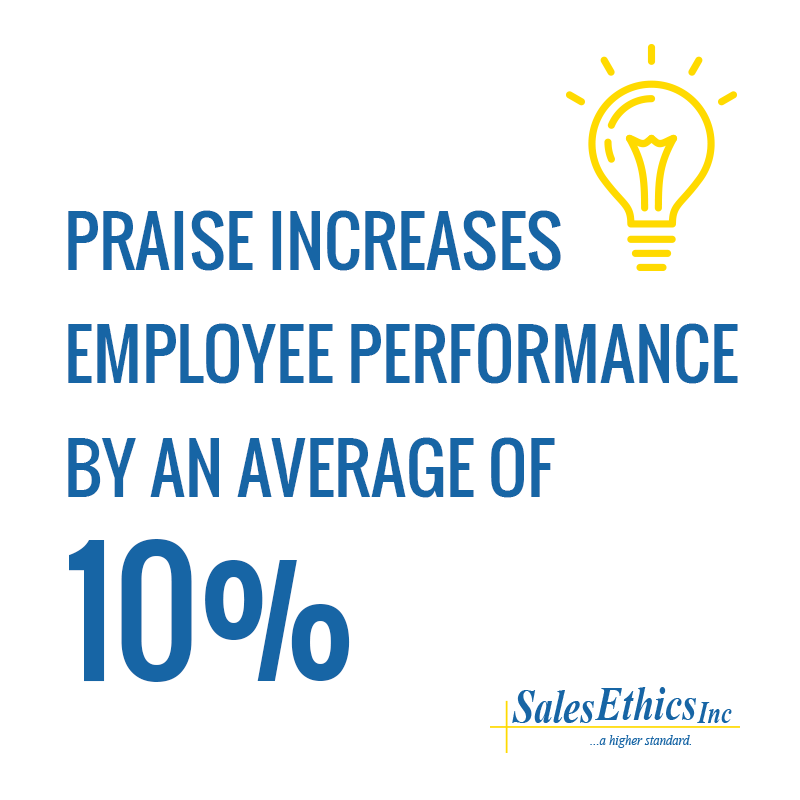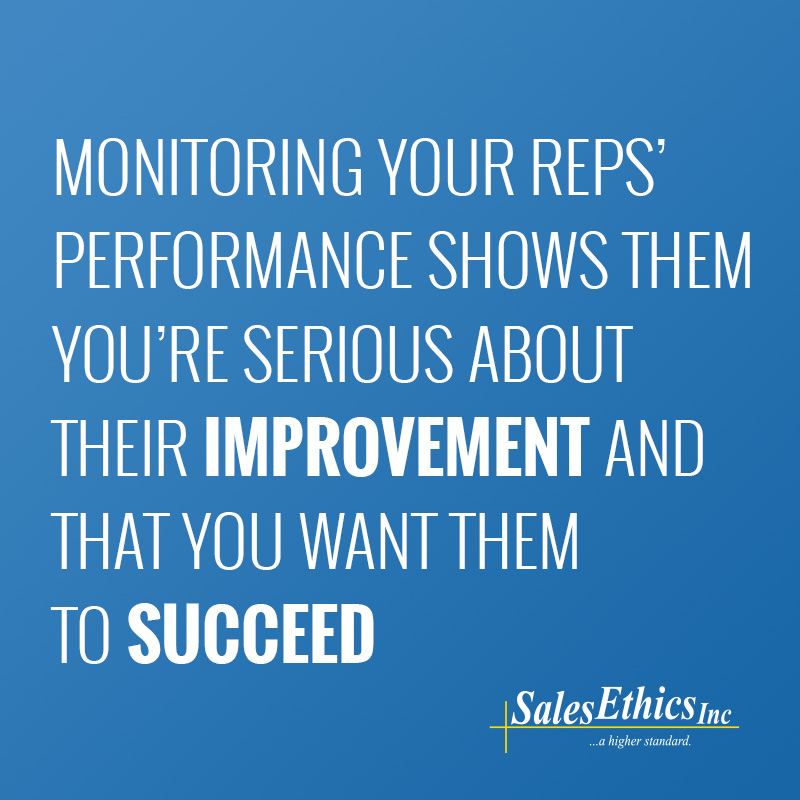
Key Takeaways
Address performance, not the anxiety. When you talk to the rep, focus on their declining metrics (like call volume) and ask for their perspective. This gives them a chance to explain their struggles without you having to make a medical diagnosis.
Work alongside them to fix their process. Schedule time to go through their entire sales process together. This helps you identify where the friction is (e.g., cold calling) and coach them on those specific steps.
Praise improvement publicly and set realistic goals. Publicly celebrating small wins helps a rep with SAD feel connected and supported by the team. Use regular 1-on-1s to set small, achievable goals to build their confidence over time.
Who this article is for
This article is for sales managers who have a talented sales rep whose performance is suffering due to a fear of human-to-human interaction, and who suspect social anxiety may be the cause.
Tell us if this story sounds familiar to you.
You’ve just finished onboarding a new sales rep. They’re a great culture fit, the rest of the team seems to like them, and they’re showing all the drive and initiative that you could hope for.
They’ve got your products and services down pat, they truly believe in your company’s mission, and they’ve got a real heart for service.
... But then a little time goes by…
And their performance begins to slowly degrade.
Sure, their pipeline looks on-point, they’re putting in the time and effort to research and qualify leads, but the results just aren’t there.
Diving deeper into your CRM, you notice their calls are way down, their outreach to leads has dwindled, and anything that’s related to human-to-human contact has plummeted.
This might feel like a case of an unmotivated — or simply lazy — sales rep. But in many cases, it’s got nothing to do with a lack of drive or motivation.
What you have is a rep who’s suffering from social anxiety disorder (SAD). And, sadly, their anxiety is affecting their performance.
If you’re not sure of the next steps you should take, don’t worry.
At SalesEthics, we’ve had decades of experience in helping sales managers get the best from their teams and helping sales reps unlock their full selling potential.
So, together, let’s dive into what social anxiety disorder is, how it affects your sales reps, and how you can help them find success while building a passionate and connection-driven team.
What is Social Anxiety Disorder and How Common Is It in Sales?
Social Anxiety Disorder (SAD) is one of the most common mental illnesses in The United States, affecting over 15 million adults — nearly 7% of the U.S. adult population.
And according to the latest data from The American Psychiatric Association, it’s on the rise, especially among younger Millennials and those from Generation Z, with little signs of slowing.
These findings are consistent with the dramatic increase in people turning to the internet for help with their sales-related anxiety over the past decade.
For sales managers like you, this means that you more than likely have — or will have — someone on your sales team that struggles with SAD or other form of anxiety disorder.
By knowing how to recognize it and how you can help your sales reps find success despite this illness, you can continue to grow your department’s performance while setting yourself apart from other leaders within your industry.
What’s the Difference Between a Salesperson with Social Anxiety and One Who is Just Feeling Shy?
Often, we’ll get stories from frustrated sales managers:
“We’ve all been shy before! Yeah, sales can be awkward and intimidating sometimes, sure. But what’s the big deal? Why can’t they just get over it?”
First and foremost, it’s key to understand that someone with social anxiety disorder isn’t just someone who feels really shy around people.
While general shyness — which we all experience at some time or another — shares similarities with social anxiety, there are 3 big differences:
1. The impact on one’s life
Shyness is generally a fleeting feeling.
While it can persist for awhile, the majority of people are able to recognize the importance of a task that needs to be completed — such as making contact with a customer — and move beyond our shyness to get the job done.
For those suffering from SAD, however, the disorder can practically control their entire life.
The small things many people might enjoy, such as get-togethers with friends, shopping, or a meal at a restaurant can feel torturously overwhelming, as those with SAD they feel they’re constantly being analyzed and judged by those around them.
2. The lengths one will go to in order to avoid certain interactions
Whether someone has SAD or not, there are certain social interactions that can always be at least somewhat stressful.
Let’s take cold calling for an example.
When it comes time to make those calls, most of us definitely feel a little bit of the ol’ butterflies in the stomach, but in the end, we’re able to embrace those moments and come out wondering what we were so worried about in the first place.
However, for those with social anxiety disorder, the stress of these interactions can feel completely insurmountable.
The downward spiral of ceaseless, intrusive, negative thoughts can become an all-consuming force that robs them of sleep, focus, and can even build to the point of a full-blown panic attack.
Naturally, the drive to avoid these situations becomes more and more pronounced as time goes on or as a deadline date gets closer and closer.
Sadly, these insurmountable feelings often get the better of those with severe social anxiety, translating into ignored calls from customers, missed follow-up opportunities, and lost sales.
3. The intensity of the anguish and fear experienced
Feeling nervous about a particular social encounter and how it might ultimately play out is completely normal.
And when something such as a large customer acquisition is on the line, those moments can shake the confidence of even the most seasoned sales pro.
But what might manifest as simple sweaty palms for us turns into something completely different for those with social anxiety disorder.
For them, every potential aspect of an important social encounter is over-analyzed ad nauseum for days, weeks, and even months before the event.
Every possible negative outcome is played over and over — on an endless loop — reminding them of just how horribly everything will go no matter what they do.
As you can imagine, this reaction can make even the simplest sales call fee like an agonizing experience. And for those with SAD, this is often the reality.
What Are the Signs & Symptoms of Social Anxiety in Salespeople?
Though you might not be able to directly relate to how your sales rep feels in their struggle with social anxiety, you can still have a tremendously positive impact on their professional growth and ultimately help them get back on the path toward success.
By understanding how the symptoms of anxiety can manifest in a sales environment, you can take the first step in putting together a plan of action for your rep’s incremental improvement.
Difficulty contacting customers, failure to follow up
Salespeople with social anxiety often have a genuine drive to help others, which is a great mindset for any salesperson.
However, this drive is typically trumped by anxiety’s booming voice that shouts:
“You’ll sound so stupid to them!”
“You know how much your voice shakes and quivers! You’ll be so awkward!”
“You’re so weird and boring — you’ll scare that customer away entirely!”
While your sales rep understands that they need to be making these calls, they’re likely procrastinating because of the temporary relief that delaying stressful situations can bring.
Little to no connection with co-workers, managers, and leadership
For salespeople with SAD, their fears don’t only manifest when anticipating direct contact with customers — it affects every person-to-person connection they might try to form.
As a sales manager, be on the lookout for sales reps who might frequently remove themselves from any opportunity to connect with co-workers, upper management, or members of leadership staff, including yourself.
While not everyone who frequently excuses themselves from these connections struggles with social anxiety, it’s definitely a behavior that’s not congruent with long-term success.
Fragmented relationships with customers
While most salespeople look forward to contacting current customers who are happy with your company’s service, those with SAD likely see things quite differently.
Even in these happy relationships, the tendency to overanalyze every aspect of a relationship leads them to always worry when the other shoe is about to drop and spiral toward disaster.
From their perspective, the relationship is ultimately doomed to failure. It’s simply a matter of time.
Sadly, these thoughts become somewhat of a self-fulfilling prophecy, as customer service ultimately suffers, the relationship stagnates, and customer satisfaction plummets.
Extreme overpreparation
Quality preparation and qualification of prospects are cornerstones of successful sales, and modern sales tools — such as CRMs and social media — have made preparation easy and time efficient.
However, for your rep with social anxiety disorder, these tools can offer a false sense of achievement while creating a great way to look and feel productive without actual sales-generating action being taken.
For your sales rep, it feels like they’re really putting their nose to the grindstone — researching dozens of leads, updating contact information, and making big plans for who to reach out to next.
And all of this can look great in your CRM’s activity reports. But, unfortunately, what looks like lots of time doing productive work is actually time spent trying to procrastinate away the social interactions they’re dreading.
Decreased sales and continually degrading performance
Over time, and if left unaddressed, many salespeople who suffer from social anxiety disorder will find themselves trapped in a downward spiral of fear, procrastination, degrading relationships, and decreasing performance.
Ultimately, these sales reps who otherwise had all of the natural talent and positive disposition necessary to succeed, leave the profession altogether feeling as if they “simply weren’t cut out” for the role.
Build a stronger sales team and win more customers with customized one-on-one coaching.
How Sales Managers Can Help Sales Reps Who Have Social Anxiety Disorder
Even if one of your reps is struggling with social anxiety, it’s highly unlikely that they will just admit it and ask for your help.
As you can imagine, that’s often the last thing they want to do, as they’re likely (and understandably) under the impression that's the best way for them to get fired.
What they will be receptive to, and what will help spur positive change, is a supportive sales manager who takes active steps to help them understand where they’re at, where they need to be, and how they can get there.
Talk to your rep about it, while giving them the opportunity to explain their perspective and save face.
If you’re under the impression that your rep’s performance is starting to get shaky due to social anxiety disorder, the quicker you can talk to them about it the better.
When having your talk, know that they’re likely fearing for their employment at the time.
In these opening moments, give them the opportunity to save face by simply asking them why they believe their performance has been declining.
This always reveals helpful information you can use to understand exactly what they’re struggling with and what you can focus on improving.
And bear in mind, you don’t need to directly ask them “Hey, do you have social anxiety disorder?”
Even if you suspect this is the case, it’s best to purely address their performance. If they should bring up their SAD during your conversation, you can acknowledge it, and thank them for sharing that with you.
Above all, the goal of the conversation is to understand the specific issues that are holding them back, let them know you’re here as a supportive presence, and put in motion a plan for success.
Point out the good they do and praise them for their improvement.
Throughout this period of improvement, your sales rep will likely feel as if they’re under a microscope and getting ready to be let go from the company.
And for them, this can amplify the stakes surrounding every action they make, even to the point of complete nonaction.
Here, it’s best to exercise a tool that every great leader relies upon: giving specific praise when good work or improvement is done.
If your sales rep completes a sale, gains a promising new lead, or follows through on appointments or calls they previously had trouble following through on, praise them for it!
Really drill down into the details of what made their effort great, the specific outcomes it will help produce, and why you’re thrilled for their improvement.
This lets them know that you’re not simply out to catch them in their next big mistake and that you’re genuinely invested in their growing success.
If the opportunity presents itself, giving praise in public can be a huge boon to their confidence as well.
Not only does it let them — and your entire sales team — know that you’re in their corner and noticing their successes, but it also helps your sales rep struggling with SAD feel truly connected to the group.
As other reps congratulate them on their success, it helps them see that they’ve got others around them who want them to succeed.
And mind you, this praise isn’t purely for their benefit alone. Praising employees has a scientifically-proven effect on their desire to do well in the future — both for you as their leader and for their personal growth.
Praise is a simple and effective win-win that helps your sales reps realize you’re invested in their success and you’re a compassionate leader who wants the best for them.
Work through their sales processes alongside them.
After your initial meeting to address their performance, schedule out a few blocks of time where you and your sales rep can go over their entire sales process.
It’s here where you’ll gain the most insight as to what exactly might be holding them back. Naturally, you’ll likely find most of the friction in their processes lie within the portions that are heavy with customer interaction.
However, in your work together, you might find that there’s a severe deficiency with their preparation, for instance, which might be leading them into many customer interactions that have a higher chance for failure and rejection.
By correcting this issue, you’ll be able to help them correct their preparation process so that it generates more favorable prospect encounters, thereby giving them more opportunities to experience success.
Regardless of where the stumbling blocks might lie within their process, working through it alongside them allows you to get the granular insight you’ll need to ensure they’re operating in alignment with your company’s sales process — and to help coach them to success.
Provide your reps with tools that aid the conversational flow between them and customers.
Helpful tools, such as product information sheets, educational pamphlets, customer surveys, or promotional events are a great way of communicating information and keeping things engaging (and even fun!) for your customers.
But beyond their informational and engagement usefulness, they’re also a great way to help your sales reps — especially those with SAD — to have an easy way to create conversational touch points.
Take a customer raffle for instance. Your reps can let customers know about this fun event and help them fill out their entry ticket, which may include contact information and a few bits of information that helps your sales team know what this customer might need in the future.
Later on, this can become a helpful tool your rep can use to create an easy and fun way to connect with this customer later on and start laying the foundations for a positive relationship.
By doing this, you not only create a vehicle for improved customer engagement for your whole team, but you help those reps who may struggle with SAD have an easy, low-pressure way of creating new opportunities.
Monitor their improvement over time and set realistic goals as they improve.
After your initial talk with your underperforming sales rep, be sure to set aside a consistently-scheduled block of time where you can meet with one another.
In doing so, you send two clear messages:
You’re serious about them committing to their improvement.
You’re on their side and you genuinely want them to achieve success.
These meetings are your best opportunity for both of you to really get down into the details of what they’re struggling with and what new challenges they might be facing, so be sure to collect any helpful data you can ahead of time, such as:
CRM activity data
Call logs
Customer feedback submissions
Sales reports
With this information, you’ll be able to get a clear by-the-numbers perspective of where you rep has been allocating their time and effort since your first talk about their performance.
During the meeting, don’t hesitate to ask them how they feel they’ve been progressing and what challenges — new or existing — they feel they’re struggling with.
By combining hard data, your rep’s perspective on their progress, and your analysis of their efforts, you’ll be able to construct an improvement plan with realistic goals that focuses on overcoming the core issues that are holding them back.
Invest in quality sales coaching for them and your entire team.
Throughout our years in providing expert sales coaching, we’ve had the honor of helping struggling reps regain their confidence, meaningfully connect with customers, and become highly-effective salespeople.
By implementing the proven SalesEthics 4-Step Plan, we help you gain an unbiased perspective on the issues holding you and your sales team back from success, create specialized plans for your reps, and continually work alongside you and your reps to bring their successful development to fruition.
And saying “we’re right there beside you” isn’t just empty marketing fluff.
If your sales calls or customer visits start right at the crack of dawn, we’re right there with your reps helping them improve each customer interaction and continually progress toward the next goal.
Our team is ready to help your sales reps break down the barriers holding them back and to make leadership enjoyable for you once again.
Whether via phone, in-person, or email, we’d love to have the opportunity to get to know you and your goals and help you build an unshakeable sales team that sells from a heart of service.
Conclusion: Helping Your Salespeople Who Struggle with Social Anxiety Disorder
Throughout our time together in this article, we’ve covered a lot of information on how you, as a sales manager, can help sales reps who are struggling with social anxiety disorder.
Social anxiety disorder in salespeople is:
Social Anxiety Disorder (SAD) is one of the most common mental illnesses in the U.S.
SAD severely affects how your salespeople perceive themselves, their social interactions, and how they think others perceive them and their abilities.
The difference between a shy salesperson and a sales rep with social anxiety disorder is:
The level of overall impact it has on their life
The lengths your sales rep will go to in order to avoid stressful social situations
The intensity of the fear, uncertainty, and anguish they feel on a daily basis
Some of the signs and symptoms of a salesperson with social anxiety disorder are:
Extreme difficulty contacting customers or pursuing leads
Few connections to co-workers or leadership members
Relationships with customers are fragmented
Over preparation for every customer interaction, to the point of procrastination
Steadily decreasing sales and overall performance
How sales managers can help sales representatives with social anxiety disorder:
Talk about it directly, but help them save face.
Praise them when they improve and be specific with your praise.
Work through their sales processes with them to find areas of improvement.
Provide them with tools that aid conversation and create connection opportunities with customers.
Keep track of their improvement and set realistic goals.
Invest in quality sales coaching.
We absolutely understand that it can be a frustrating experience to see a salesperson who struggles with SAD start out so strong, yet steadily get worse and worse as time goes on.
But their struggles with social anxiety doesn’t mean they don’t have a heart for the customers they wish to serve, nor that they can’t be extremely successful in their sales role.
To the contrary, those with SAD typically share a greater level of genuine empathy for customers and their problems, and would love nothing more than to build a relationship that leads to those problems being a thing of the past.
While not all may stay with your sales team or the sales profession, it’s always worth the effort to help your reps realize their abilities, plan for improvement, and develop into strong people and sales professionals.
By doing so, not only do you create a stronger team, but you hone your leadership skills, improve your ability to connect with people from all walks of life, and become a better sales manager.
Let's work together to lead your sales team to success.







